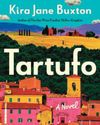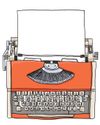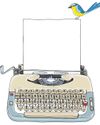
I started writing personal essays more or less accidentally. I had (and still have) what began as a monthly column for the online magazine Author but soon tally. I had (and still have) what began as a monthly column for the online magazine Author but soon turned, despite my mild objections, into a daily column.
I didn't think I had enough to say about writing and publishing to fill 400 words, five days a week. And I was right! After only a month, I didn't want to pen another piece about query letters or agents or markets. So, I decided to tell a story.
While I had been telling fictional stories for years, I was not accustomed to personal narrative, at least not on the page. I told stories to my friends and family all the time, but this, I knew, would be different. Fortunately, Author was intended to be an uplifting magazine-we would publish no articles or interviews filled with any gloom and doom about the publishing world or how hard it is to write. Instead, we would always encourage.
That meant my story had to be uplifting, which helped serve as a guide, a definite target for my narrative arrow. However, I didn't appreciate until I reached the story's end, specifically the last paragraph and then the very last line, that whether the story left the reader feeling hopeful or indifferent or discouraged would be determined in these final words. What's more, when I finished it to my satisfaction, and as I pushed myself away from the desk, I noticed how peaceful and soothed I felt. It was an important lesson for a newly minted essayist: In writing it, I had left myself feeling how I hoped my readers would feel.
この記事は Writer’s Digest の May - June 2023 版に掲載されています。
7 日間の Magzter GOLD 無料トライアルを開始して、何千もの厳選されたプレミアム ストーリー、9,000 以上の雑誌や新聞にアクセスしてください。
すでに購読者です ? サインイン
この記事は Writer’s Digest の May - June 2023 版に掲載されています。
7 日間の Magzter GOLD 無料トライアルを開始して、何千もの厳選されたプレミアム ストーリー、9,000 以上の雑誌や新聞にアクセスしてください。
すでに購読者です? サインイン

What Is Your Story Question?
Revision and editing advice to take your first draft to the next level.

Writing for the People We Hope to Become
Elisa Stone Leahy's new middle-grade novel, Mallory in Full Color, tackles the in-between moments of adolescence, when who we are and who we want to become collide.

Creating Community
Whether hot off the presses or on the shelves for years, a good book is worth talking about.

Pat Barker
The Booker Prize-winning author of Regeneration shares the role characters play in developing novel ideas and explains what appeals to her about reimagining mythology.

How to Write in Different Genres
Emiko Jean and Yulin Kuang share tips and strategies for how they successfully write in different genres and mediums.

The Shortest Distance Between Two Points
Ten tips for writing a novel with 100-word stories.

Mayfly Marketing
How to sell your novel in a short-attention-span world.

"You'll be a great essay".
How to write six types of personal essays by finding the funny in your life.

The Idea Factory
Tired of staring at an empty screen? Unlock your inner fiction generator with these surprising inspiration techniques.

Seinfeld Was Right: That's a Story
Use mundane moments from everyday life to create stories that pack a punch.